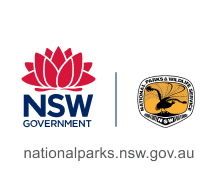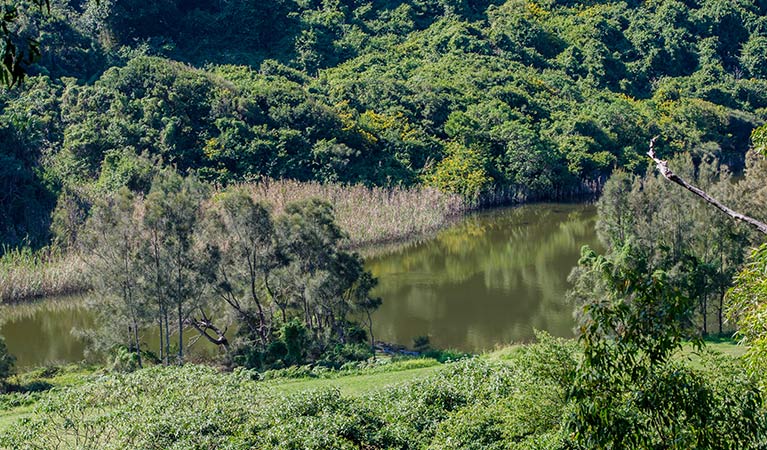School excursion
What is a national park?
Awabakal Nature Reserve
Overview
Did you know that over 9 per cent of NSW is a national park? That’s over 7 million hectares. This Stage 2 (Years 3-4) earth’s environment Geography excursion is delivered at Awabakal Nature Reserve.
Learn about the local Aboriginal culture and impact of European settlement on the area.
Read more about What is a national park?
Explore the changing ecosystems from the forest to the sea.
Understand the important role of workers in a national park, and how you can help to conserve and protect these special places. Explore the high diversity of flora, including the last pocket of coastal rainforest in the region, and animal species.
Students will learn about the critical role national parks play in preserving our native plants, animals and rich cultural heritage.
We’ll look at some of the key, human-led threats to native species and places including urbanisation and domestic pests. By examining these threats we’ll invoke a strong sense of the role students – our future environmental leaders – can play in preserving these important places for the future.
For program outline, safety and practical information about this excursion, see info for teachers
| Stage | Stage 2 (Years 3-4) |
|---|---|
| Learning area | Geography |
| Student outcomes |
GE2-1. Examines features and characteristics of places and environments GE2-2. Describes the ways people, places and environments interact GE2-4. Acquires and communicates geographical information using geographical tools for inquiry |
| Objectives |
Students will:
|
Excursion details
- When
Weekdays.
- Availability
- Guided. Available on request.
- Where
- Awabakal Nature Reserve in North Coast
- Duration
- 2-4 hr
- Grading
- Medium. Guided activities in a suburban National park, on formed and uneven bush walking tracks, along sandy tracks and on a grassed picnic area.
- Price
-
$225 per group (includes GST) for 2 hours. Longer tours are available. Maximum 30 students per group. For groups over 30 conditions apply.
- Accessibility
- No wheelchair access
- Meeting point
- Look for the Discovery ranger outside Awabakal Environmental Education Centre, Boundary St, Dudley.
- Equipment
provided - Yes. All equipment is provided.
- Booking
- If you would like to organise a NPWS school excursion please get in touch with local staff or use the 'Enquire' link for the online form.
Local alerts
For the latest updates on fires, closures and other alerts in this area, see https://www.nationalparks.nsw.gov.au/education/stage-2-hsie-what-is-a-national-park-awabakal-nature-reserve/local-alerts
Operated by
- School excursion inquiries - Newcastle Hunter
- 02 4927 3267
- discovery.newcastlehunter@environment.nsw.gov.au
- Hunter Wetland Centre, Sandgate Road, Shortland NSW
Park info
- in Awabakal Nature Reserve in the North Coast region
Info for teachers
All the practical information you need to know about What is a national park? .

